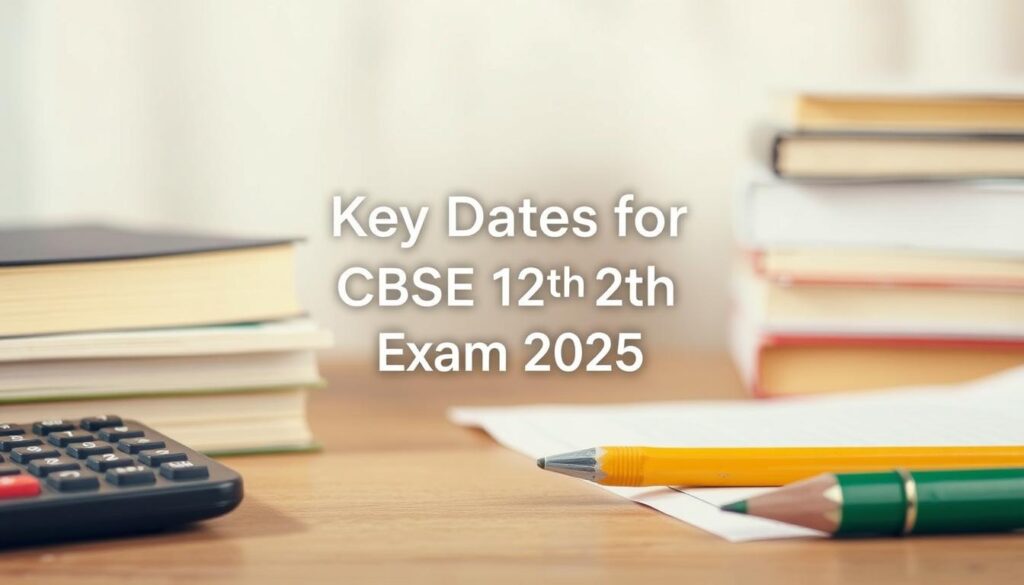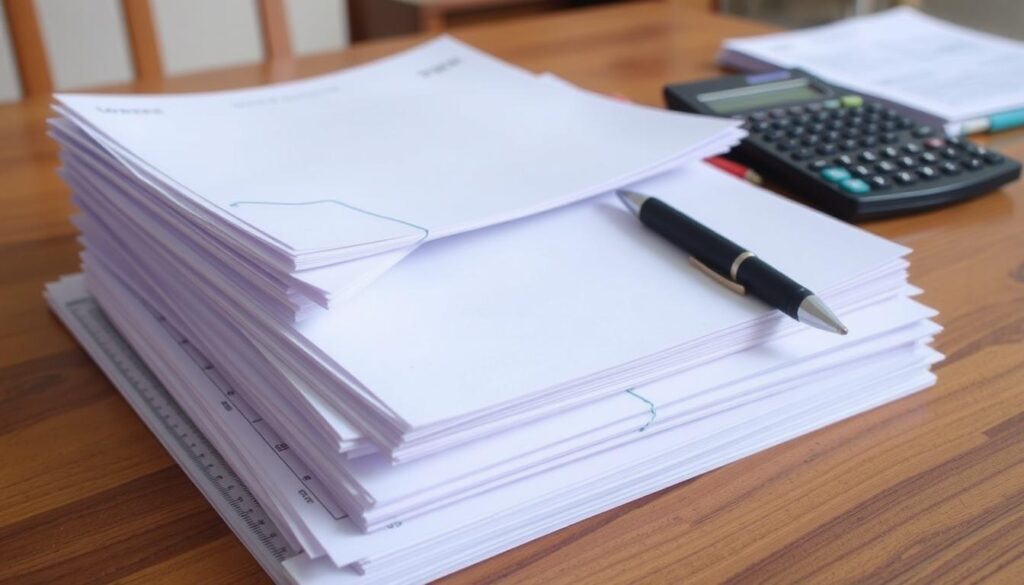The CBSE Class 12 board exams are a crucial milestone for students across India. With over 42 lakh students appearing annually, these exams shape academic and career paths. Understanding the syllabus, exam pattern, and preparation strategies is essential for success.
In 2025, the exams are scheduled from February 15 to April 4, with practical assessments playing a significant role. Recent trends show a pass rate of 87-88%, with girls outperforming boys by a notable margin. This guide provides a comprehensive overview to help students navigate the process effectively.
From syllabus details to expert tips, this resource is designed to support students in achieving their goals. Whether you’re aiming for top scores or simply looking to pass, this guide has you covered.
Understanding the CBSE 12th Exam
Board exams play a critical role in shaping future educational and career opportunities. For students in India, the class board examination is a defining moment that opens doors to higher education and professional growth. With a pass rate of 87.98% in 2024, these exams are a gateway to premier universities and scholarship opportunities.
What is the CBSE 12th Exam?
The board exams are a standardized assessment conducted at the end of secondary education. They evaluate a student’s understanding of subjects studied over two years. These exams are essential for admission to competitive courses like NEET, JEE, and CUET.
Importance of the CBSE 12th Exam
The results of these exams directly impact college admissions and merit-based scholarships. They also serve as a foundation for professional courses such as CA, CS, and architecture. Additionally, digital mark sheets through DigiLocker ensure permanent access to results, while the absence of an official topper list since 2023 aims to reduce student stress.
CBSE 12th Exam Syllabus Overview
A clear understanding of the syllabus is essential for effective preparation. The syllabus for the board exams is divided into three main streams: Science, Commerce, and Arts. Each stream has its unique subjects and assessment methods, ensuring a well-rounded education for students.
For students in the Science stream, subjects like Physics, Chemistry, and Biology are core areas of focus. Practical assessments, such as lab experiments, play a significant role in evaluating their understanding. In Commerce, subjects like Accountancy, Business Studies, and Economics are emphasized, with projects and case studies forming part of the evaluation.
The Arts stream offers a diverse range of subjects, including History, Political Science, and Fine Arts. Practical components like research projects and portfolio submissions are integral to this stream. Below is a detailed breakdown of the syllabus for each stream.
Science Stream Syllabus
Students in the Science stream focus on subjects like Physics, Chemistry, and Biology. Practical assessments, including lab experiments, are crucial for scoring well. Topics like Organic Chemistry and Genetics are covered in depth, ensuring a strong foundation for higher studies.
Commerce Stream Syllabus
The Commerce stream includes subjects like Accountancy, Business Studies, and Economics. Students are required to complete projects and case studies, which contribute to their overall marks. Topics like Financial Statements and Market Structures are key areas of study.
Arts Stream Syllabus
The Arts stream offers a variety of subjects, such as History, Political Science, and Fine Arts. Practical components include research projects and portfolio submissions. For example, History covers topics like the Harappan civilization, while Political Science focuses on the Cold War.
- Psychology: 70 marks for theory and 30 marks for practical file assessments.
- Geography: GIS mapping practicals using QGIS software.
- Sociology: Research projects on Indian social institutions.
- Fine Arts: Portfolio submissions on A3 size sheets.
- Language Electives: Detailed study of prescribed novels and poetry.
CBSE 12th Exam Pattern
Understanding the exam pattern is crucial for effective preparation. The structure of the board exams includes both theory and practical components, ensuring a comprehensive evaluation of a student’s knowledge and skills.
Theory and Practical Exam Structure
The exams are divided into two main parts: theory and practical. The theory section tests conceptual understanding through written papers, while the practical component evaluates hands-on skills and application. Students must score at least 33% combined in both sections to pass.
Marking Scheme and Grading System
The grading system follows a 9-point scale, ensuring fairness and transparency. Here’s a breakdown of the grades and their corresponding marks:
- A1: 91-100 marks
- A2: 81-90 marks
- B1: 71-80 marks
Additionally, a moderation policy allows up to a 5% mark adjustment for difficult papers. Students who fail in 1-2 subjects can appear for compartment exams. Practical exams are moderated through random school verification, and digital mark sheets include QR codes for security.
Key Dates for CBSE 12th Exam 2025

Staying updated with key dates is essential for effective planning. The class 12th exams are scheduled from February 15 to April 4, 2025. Practical assessments will take place during this period, ensuring a comprehensive evaluation of students’ skills.
Exam Schedule and Practical Dates
The exams are divided into theory and practical components. Theory papers will be conducted in the morning session, while practicals are scheduled in the afternoon. Students should check their school’s specific timetable for exact dates.
Result Declaration Timeline
The 12th result 2025 is expected to be declared between May 7 and May 20. In 2024, results were announced on May 13 at 1 PM IST. Students can access their results through multiple platforms, ensuring convenience and accessibility.
- DigiLocker Integration: Instant access to digital mark sheets.
- Regional Result Servers: Chennai, Delhi, and Guwahati nodes for faster processing.
- SMS Service: Send CBSE12 to 7738299899 for quick results.
- Post-Result Services: Verification (₹500) and photocopy (₹700) options available.
- Supplementary Exams: Scheduled from July 15 to July 22, 2025.
Preparation Strategies for CBSE 12th Exam
Effective preparation requires a well-structured approach to studying and managing time. With the right strategies, students can maximize their productivity and reduce stress during the board exams. This section provides practical tips to help students create a study plan and manage their time efficiently.
Creating a Study Plan
A well-organized study plan is the foundation of successful preparation. Start by dividing the syllabus into manageable sections. Allocate specific time slots for each subject, ensuring a balanced focus on all topics. Prioritize areas where you need more practice.
Use techniques like the Pomodoro method—study for 45 minutes, then take a 15-minute break. This helps maintain focus and prevents burnout. Additionally, dedicate the night before the exam to a focused 3-hour revision session to reinforce key concepts.
Effective Time Management Techniques
Time management is crucial during both preparation and the actual exam. For the written paper, divide your time wisely—30 minutes for MCQs and 60 minutes for short answers. This ensures you complete all sections without rushing.
For practical exams, start preparing at least two weeks in advance. Follow an intensive lab schedule to build confidence in your hands-on skills. Lastly, consider a digital detox during study hours. Use app blockers to minimize distractions and stay focused on your goals.
Importance of NCERT Textbooks

NCERT textbooks are a cornerstone of academic success for students across India. These books are designed to align with the curriculum, ensuring a strong foundation in key subjects. They are widely recognized for their clarity, accuracy, and relevance to education standards.
For students preparing for competitive exams, NCERT books provide a solid base. They cover essential concepts in a structured manner, making them indispensable for effective learning. Schools across the country rely on these textbooks to deliver quality education.
How to Utilize NCERT Books Effectively
To make the most of NCERT textbooks, students should focus on understanding the concepts rather than memorizing them. Start by reading each chapter thoroughly, paying attention to definitions, examples, and diagrams. Highlight key points for quick revision.
Practice the exercises at the end of each chapter. These questions are designed to test understanding and application. For subjects like Physics, avoid common errors such as unit conversion mistakes. Use the Diksha portal for video explanations to clarify doubts.
NCERT Solutions and Their Role
NCERT solutions are an excellent resource for self-assessment. They provide step-by-step answers, helping students understand the correct approach to solving problems. Step marking analysis ensures that students earn partial marks for correct steps, even if the final answer is wrong.
Key phrases like “Hence proved” and “Therefore” are often used in solutions to ensure full credits. Comparing NCERT solutions with reference books can provide additional insights into problem-solving techniques. This comparative study helps students develop a deeper understanding of the subject.
Solving Sample Papers and Previous Year Question Papers
Practicing sample papers and analyzing previous year question papers can significantly boost a student’s confidence and performance in examinations. These resources provide insights into the exam pattern, question trends, and areas that require more focus.
Data from 2019-2024 shows that 35% of biology diagrams are repeated in question papers. This highlights the importance of identifying recurring patterns in each subject. By understanding these trends, students can prioritize their preparation effectively.
Benefits of Practicing Sample Papers
Solving sample papers helps students familiarize themselves with the exam format. It also improves time management skills, as they learn to allocate time to different sections. Regular practice reduces anxiety and builds confidence for the actual test.
Sample papers often include questions from all chapters, ensuring comprehensive revision. They also help identify weak areas, allowing students to focus on topics that need improvement. This targeted approach enhances overall performance.
How to Analyze Previous Year Papers
Analyzing previous year papers involves identifying recurring topics and question types. For example, chemistry papers often emphasize organic reactions, while biology focuses on diagrams. Mapping these trends helps students prioritize their study material.
Here are some strategies for effective analysis:
- Chapter Frequency Analysis: Track which chapters appear most frequently in exams.
- Difficulty Mapping: Use a star-rating system to categorize questions by difficulty level.
- Examiner Comments: Review common reasons for mark deductions to avoid mistakes.
- 10-Year Pattern: Study how case study formats have evolved over time.
- Digital Analysis: Use tools like Excel to track weak areas and monitor progress.
By following these steps, students can develop a strategic approach to their preparation, ensuring they are well-prepared for the examinations.
CBSE 12th Exam Sample Papers

Sample papers are a powerful tool for mastering the exam format and improving performance. They provide a realistic preview of the board exams, helping students identify their strengths and weaknesses. By practicing these papers, students can build confidence and improve their problem-solving skills.
Where to Find Official Sample Papers
Official sample papers are available on the CBSE website. These papers are designed to reflect the latest exam pattern and syllabus. Students can also access additional resources, such as video solutions on the official YouTube channel, which provide step-by-step explanations for complex questions.
How to Use Sample Papers for Preparation
Using sample papers effectively involves a 3-phase approach: diagnostic, speed, and accuracy. Start by solving a paper under timed conditions to assess your current level. Identify areas that need improvement and focus on them during the speed phase. Finally, work on accuracy by minimizing errors and refining your answers.
Here are some strategies to maximize the benefits of sample papers:
- Color Coding: Categorize questions as red (difficult), yellow (moderate), or green (easy) to prioritize your study.
- Peer Evaluation: Exchange answer sheets with classmates to gain new perspectives and learn from each other’s mistakes.
- Error Log: Maintain a diary of 100 common mistakes to avoid repeating them in the actual exam.
- Final Week Marathon: Solve the 2025 sample papers intensively to reinforce your preparation.
By following these steps, students can make the most of their time and approach the exam with confidence.
CBSE 12th Exam Marking Scheme
Mastering the marking scheme is a key step toward achieving high scores in the board assessments. Understanding how marks are allocated helps students focus on the most important areas and avoid common mistakes. This section breaks down the weightage of questions and provides actionable tips to maximize marks.
Understanding the Weightage of Questions
The marking scheme varies by subject, but some general rules apply. For example, numerical problems often carry higher marks, and units must be written correctly to avoid deductions. Diagrams should be drawn neatly, using a pencil for sketches and a pen for labeling.
Here’s a quick guide to the weightage:
- First Page Impact: A well-structured introduction can leave a positive impression on examiners.
- Diagram Rules: Use a pencil for sketches and a pen for labeling to ensure clarity.
- Unit Writing: Always include units in numerical answers to avoid losing marks.
Tips to Maximize Marks
To score well, students should follow these strategies:
- Cancellation Method: Use a single line to strike out incorrect answers instead of scribbling.
- Last-Minute Check: Review your paper using a 10-point verification list to catch errors.
- Keyword Highlighting: Toppers in 2024 averaged 92.4% by emphasizing key terms in their answers.
By focusing on these details, students can improve their performance and approach the exam with confidence.
Practical Exam Preparation Tips

Practical exams are a vital part of the assessment process, requiring both skill and precision. These exams test a student’s ability to apply theoretical knowledge in real-world scenarios. Proper preparation can make a significant difference in performance.
How to Excel in Practical Exams
To perform well, students should focus on accuracy and attention to detail. For example, in chemistry, titration errors accounted for 18% of lost marks in 2024. Always record observations in a tabular format for clarity. Label chemicals with their correct concentrations in Molarity to avoid confusion.
Graph plotting is another critical area. Use the specified grid size and ensure all axes are labeled correctly. For project submissions, ensure originality by conducting anti-plagiarism checks. Timing is also crucial—avoid leaving the exam hall early to prevent penalties.
Common Mistakes to Avoid
Many students lose marks due to avoidable errors. Here are some tips to stay on track:
- Observation Recording: Use a structured tabular format to present data clearly.
- Chemical Labeling: Always include concentrations in Molarity to ensure accuracy.
- Graph Plotting: Follow grid size specifications and label all axes properly.
- Project Submissions: Conduct anti-plagiarism checks to maintain originality.
- Timing Errors: Avoid early exits to prevent unnecessary penalties.
By focusing on these areas, students can improve their practical exam performance and achieve better results.
CBSE 12th Exam Admit Card
The admit card is a crucial document for every student appearing for the board assessments. It serves as an entry pass to the examination hall and contains essential details that candidates must verify carefully. Without this card, entry to the exam center is not permitted.
How to Download the Admit Card
Students can download their admit cards from the official website. The process involves entering the 16-digit LOC code and selecting the candidate’s category. It’s important to check all details, including the exam date and center address, to avoid last-minute issues.
Details Mentioned on the Admit Card
The admit card includes several key pieces of information. Here’s what to look for:
- Security Features: Hologram and QR code to prevent forgery.
- Subject Codes: Cross-verification method to ensure accuracy.
- Disability Accommodations: Details about scribes, if applicable.
- Transport Info: Nearest metro stations for easy access.
- Emergency Contacts: Center in-charge number for assistance.
Students should print the admit card on A4-sized paper and keep it safe until the results are declared. Any discrepancies should be reported immediately to the school or exam center.
CBSE 12th Exam Result 2025

The announcement of results is a pivotal moment for students, marking the culmination of their hard work and preparation. Understanding the result format and how to access it ensures a smooth experience during this crucial phase.
How to Check the Result Online
Students can access their results through the official website by entering their roll number and other required details. The process is straightforward, and results are also available via SMS and the DigiLocker app for convenience.
Understanding the Result Format
The result includes a subject-wise breakdown, showing marks for both theory and practical components. The Cumulative Grade Point (CGP) is calculated using positional grades, providing a clear overview of performance.
Here’s what students should look for in their results:
- Qualifying Status: Indicates whether a student has passed or needs to appear for compartment exams.
- Migration Certificate: Available digitally for students planning to pursue higher education.
- QR Code Verification: Ensures the authenticity of the result and prevents tampering.
- Duplicate Marksheet: Can be obtained through the regional office if needed.
By familiarizing themselves with these details, students can navigate the post-result process with confidence and clarity.
Post-Exam Procedures
After completing the assessments, students often face important decisions about their next steps. Whether it’s revaluation, supplementary tests, or planning for college admissions, understanding these procedures is essential. With an 89% pass rate in 2024, most students move forward, but others may need to explore additional options.
Revaluation and Rechecking Process
For students who believe their marks don’t reflect their performance, revaluation is a viable option. This process involves a thorough review of the answer sheets to ensure accuracy. Eligibility criteria include a maximum of two failed subjects. The date for applying typically falls within 10 days of the result declaration.
Revaluation can lead to mark adjustments, which might impact college admissions. Students should also consider the time and cost involved before opting for this process. Provisional certificates are often issued to help students secure admission while awaiting the final results.
Supplementary Exams and Their Importance
Supplementary exams provide a second chance for students who didn’t meet the passing criteria. Scheduled from July 15 to July 22, 2025, these tests are crucial for those aiming to improve their scores. A 6-week crash course is recommended for focused preparation.
Vocational subjects offer alternate papers, giving students flexibility in their choices. Success in supplementary exams ensures students stay on track for higher education and career opportunities. It’s a valuable opportunity to turn setbacks into stepping stones.
CBSE 12th Exam Updates for 2025
The 2025 academic year brings notable updates to the examination process, ensuring fairness and inclusivity for all participants. These changes aim to streamline the assessment experience while addressing the unique needs of diverse students.
Latest Changes in Exam Pattern
This year, the examination pattern has been refined to better evaluate students’ understanding and skills. The focus is on balancing theoretical knowledge with practical application. Questions are designed to test critical thinking and problem-solving abilities, preparing students for real-world challenges.
Special Examinations for Sports Participants
Recognizing the commitments of national and international athletes, special examinations will be held from April 7-11, 2025. This ensures that sports participants can balance their academic and athletic pursuits without compromise.
- Eligibility Proof: A valid SAI certificate is required for participation.
- Center Allocation: Exams will primarily be conducted in Delhi NCR for convenience.
- Question Paper Parity: The difficulty level remains consistent with the standard papers.
- Result Integration: Marks will be combined into a single mark sheet for clarity.
- Scholarship Opportunities: Eligible students can benefit from the TOP Scheme linkage.
These updates reflect a commitment to supporting students in achieving their academic and extracurricular goals.
Expert Tips for CBSE 12th Exam Success
Achieving success in the final assessments requires more than just hard work—it demands smart strategies and a calm mindset. With the right approach, students can maximize their potential and perform at their best. Below are expert tips to help you navigate this crucial phase with confidence.
Last-Minute Preparation Tips
In the final days before the exam, focus on revising key concepts rather than learning new material. Use techniques like the 4-7-8 breathing method to stay calm and centered. Positive visualization, practiced for 10 minutes daily, can also boost confidence and reduce anxiety.
Peer support is another effective strategy. Form a study buddy system to review difficult topics together. This not only enhances understanding but also provides emotional support during stressful times.
How to Stay Calm and Confident
Staying calm during the exam is crucial for optimal performance. Cognitive Behavioral Therapy (CBT) exercises can help manage anxiety by reframing negative thoughts. Practice these techniques regularly to build resilience.
In the exam hall, use the first five minutes to plan your approach. Skim through the paper, identify easy questions, and allocate time wisely. This strategy ensures you stay organized and focused throughout the test.
Final Thoughts on CBSE 12th Exam Preparation
Preparing for the board assessments requires a blend of strategy, focus, and adaptability. The 2025 changes emphasize application-based learning, encouraging students to think critically and solve real-world problems. This shift highlights the importance of understanding concepts deeply rather than rote memorization.
Resource consolidation is key. While official materials like NCERT books are essential, third-party resources can provide additional practice. Balancing these ensures comprehensive preparation. Health also plays a vital role. Proper ergonomics and eye care are crucial during long study sessions to maintain focus and avoid fatigue.
Digital tools like the CBSE Saransh portal offer analytics to track progress and identify weak areas. Leveraging these tools can enhance preparation efficiency. Finally, alumni mentorship programs provide valuable insights and guidance, helping students navigate challenges and build a legacy of success.